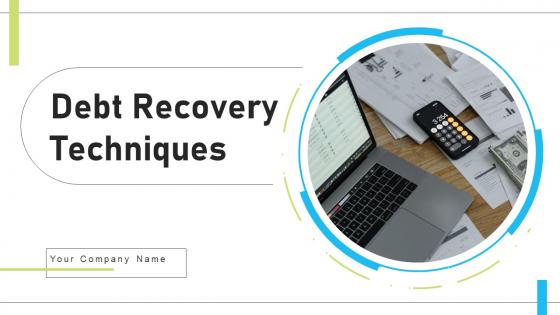


Introduction
Challenges In Debt Recovery And Solutions;
Debt recovery is a critical function for businesses, particularly in maintaining cash flow and financial stability. However, recovering outstanding debts can be fraught with challenges. This article explores some of the common challenges in debt recovery and provides strategies to overcome them.
Understanding Debt Recovery
Debt recovery involves pursuing payments of debts owed by individuals or businesses. It can be a complex process influenced by various factors including the debtor’s financial situation, the nature of the debt, and legal considerations.
Common Challenges in Debt Recovery
1. Identifying the Right Debtors
One of the primary challenges in debt recovery is accurately identifying and locating the right debtors. Inaccurate information can lead to wasted efforts and resources. Debtors may move without leaving a forwarding address, change contact details, or even provide incorrect information initially.
Solution: Implement robust data verification processes at the outset. Use multiple data sources and skip tracing tools to ensure the accuracy of debtor information. Regularly update and verify contact details.
2. Debtors’ Financial Difficulties
Debtors often face genuine financial difficulties, making it challenging to recover the owed amount. Economic downturns, job losses, or unexpected expenses can hinder their ability to pay.
Solution: Develop empathetic and flexible payment plans. Understanding the debtor’s financial situation and offering realistic repayment options can improve the likelihood of recovery. Building a rapport and demonstrating a willingness to work with them can lead to better outcomes.
3. Legal and Regulatory Hurdles
Debt recovery is governed by various laws and regulations which vary by jurisdiction. Navigating these legal requirements can be challenging, especially for businesses operating in multiple regions.
Solution: Stay informed about relevant laws and regulations. Engage legal experts to ensure compliance and to navigate complex legal landscapes. Training your debt recovery team on legal requirements can also prevent potential violations and legal issues.
4. Uncooperative Debtors
Some debtors may be uncooperative, ignoring communication attempts or disputing the debt. This can significantly delay the recovery process and increase costs.
Solution: Employ a strategic approach to communication. Use a combination of letters, emails, phone calls, and, if necessary, in-person visits. Clear and consistent communication can prompt debtor response. In cases of disputes, having thorough documentation and a clear understanding of the debt can help resolve issues efficiently.
5. Maintaining Positive Customer Relationships
Aggressive debt recovery tactics can damage customer relationships and harm your business’s reputation. Balancing recovery efforts with maintaining a positive relationship with the debtor is crucial.
Solution: Adopt a customer-centric approach. Treat debtors with respect and empathy, and prioritize transparent communication. Offering assistance and support rather than being confrontational can preserve relationships and encourage debtors to settle their accounts.
6. Resource Constraints
Debt recovery can be resource-intensive, requiring time, manpower, and financial investment. Smaller businesses may struggle to allocate sufficient resources to effective debt recovery efforts.
Solution: Consider outsourcing debt recovery to specialized agencies. These agencies have the expertise and resources to manage the process efficiently. Alternatively, investing in debt recovery software can automate many tasks, reducing the burden on your internal team.
7. High Volume of Debt Cases
Managing a high volume of debt cases can be overwhelming, leading to inefficiencies and reduced recovery rates. Each case may require a unique approach, adding to the complexity.
Solution: Implement a robust case management system. Prioritize cases based on factors such as the amount owed, the age of the debt, and the debtor’s history. Using data analytics can help identify trends and prioritize efforts on cases with higher chances of recovery.
8. Handling Disputed Debts
Debts may be disputed by the debtor for various reasons, such as errors in billing, dissatisfaction with products or services, or misunderstandings. Disputed debts can be more challenging to recover.
Solution: Have a clear process for handling disputes. Investigate disputes promptly and provide clear evidence to support the debt claim. Resolving disputes amicably and efficiently can lead to successful recovery.
9. Technological Challenges
Keeping up with technological advancements and integrating them into debt recovery processes can be challenging. Outdated systems can hinder efficiency and accuracy.
Solution: Invest in modern debt recovery technology. Use software solutions that offer automation, data analytics, and integration with other business systems. Staying updated with technological trends can enhance your recovery efforts and improve overall efficiency.
10. International Debt Recovery
Recovering debts from international debtors adds another layer of complexity due to different legal systems, cultural differences, and language barriers.
Solution: Partner with international debt recovery agencies familiar with the local regulations and practices. Understanding cultural nuances and employing multilingual communication can also aid in the recovery process.
Strategies for Effective Debt Recovery
To overcome these challenges, businesses need to adopt effective debt recovery strategies:
1. Early Intervention: Addressing debts early increases the chances of recovery. Implement regular monitoring and follow-up systems to identify overdue accounts promptly.
2. Clear Communication: Maintain clear, consistent, and respectful communication with debtors. Clearly outline the terms of the debt, repayment options, and consequences of non-payment.
3. Documentation: Keep thorough records of all communications and transactions related to the debt. This documentation can be crucial in resolving disputes and providing evidence if legal action is necessary.
4. Legal Recourse: When all other efforts fail, legal action may be necessary. Consult with legal professionals to understand your options and proceed with the appropriate legal measures.
5. Negotiation and Mediation: Sometimes, negotiating a settlement or using mediation services can lead to a quicker and mutually agreeable resolution.
6. Customer Education: Educate customers about the importance of timely payments and the consequences of defaulting. Providing financial literacy resources can also help prevent future debt issues.
Conclusion
Debt recovery is a complex process with numerous challenges. However, by understanding these challenges and implementing effective strategies, businesses can improve their recovery rates and maintain financial stability. Empathy, clear communication, legal compliance, and the strategic use of technology are key components of a successful debt recovery process. By balancing assertiveness with customer-centric approaches, businesses can navigate the complexities of debt recovery while preserving valuable customer relationships.
· Debt Recovery
· Outstanding Debts
· Data Verification
· Financial Difficulties
· Payment Plans
· Legal Compliance
· Uncooperative Debtors
· Customer Relationships
· Resource Constraints
· Debt Recovery Software
· Case Management
· Disputed Debts
· Technological Challenges
· International Debt Recovery
· Negotiation and Mediation
Contact Us
Chaman Law Firm today. Our offices are conveniently located in Lagos, FCT Abuja, Ogun State, and the UK. We are readily available to assist you with your legal needs. Whether you require consultation, representation, or ongoing legal support, Chaman Law Firm is your trusted partner.
Call us at 08065553671 or email us at info@chamanlawfirm.com to schedule a consultation.


